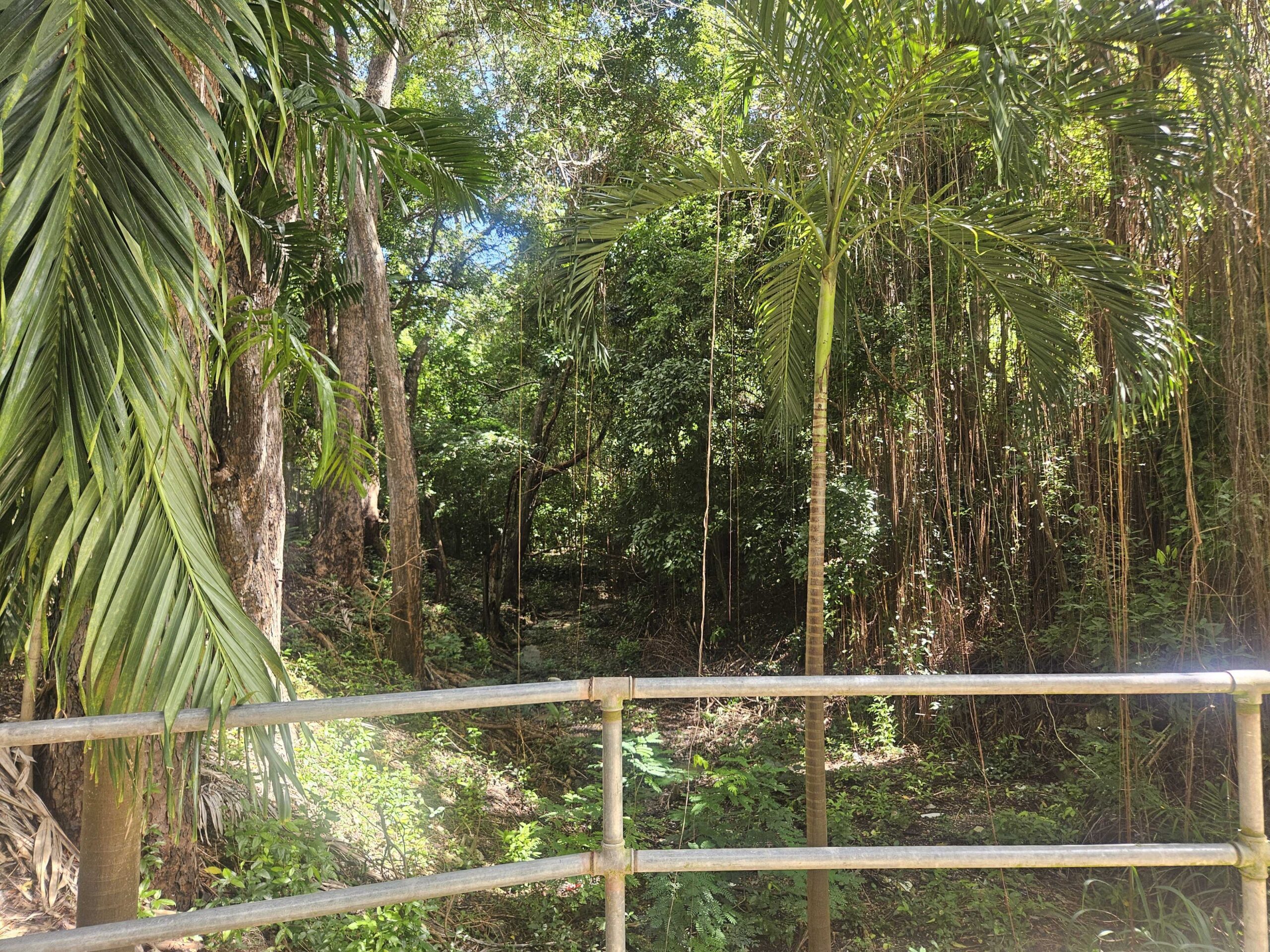Santo Domingo is set to host CyberWeek@LAC4 2025, a pivotal regional forum from November 17 to 20, organized by the European Union, the LAC4 Cyber Competence Center, and Dominican platform FACTOR. The event aims to tackle the alarming surge in cyberattacks across Latin America, which has seen a staggering 108% year-over-year increase. This rise has severely impacted sectors such as government, education, telecommunications, and healthcare, making the forum a critical platform for fostering digital resilience and international collaboration. The event will bring together cybersecurity experts, government officials, researchers, and business leaders from Europe and Latin America to share insights and strategies. Supported by initiatives like EU CyberNet, EL PACCTO 2.0, and the EU–LAC Digital Alliance, alongside private-sector sponsors, the forum underscores the urgency of addressing cybersecurity as a regional priority. Juan Luis Vargas Molina, a prominent Dominican mathematician and founder of FACTOR, will be a featured speaker. Molina, a former contributor to the NSA, emphasized the importance of treating digital trust infrastructure as critical national infrastructure. He highlighted the potential risks of compromised cryptographic keys, which could destabilize both public and private systems. Molina also stressed the need for stringent traceability and verification under Law 126-02, noting that FACTOR provides essential tools for auditing cryptographic security.
博客
-
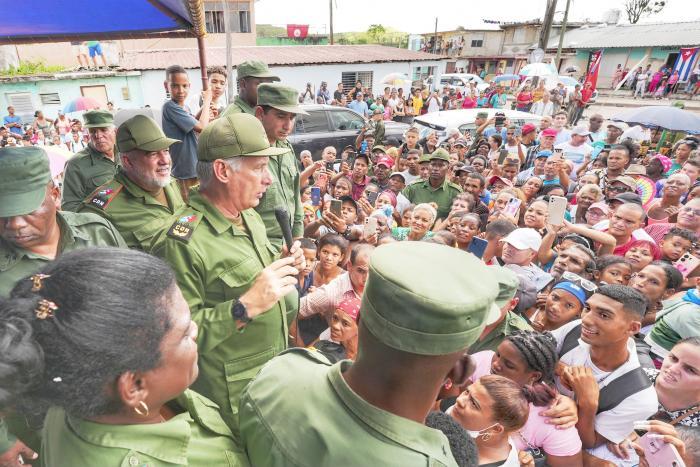
the most difficult moments, we must stand by the people
In the wake of Hurricane Melissa, Cuban authorities, led by President Miguel Díaz-Canel Bermúdez, have acknowledged the severe and ongoing challenges faced by the eastern provinces. During a National Defense Council (CDN) working session in Santiago de Cuba, Díaz-Canel emphasized the persistent disruptions to essential services, including electricity and drinking water, and the extensive damage to housing and infrastructure. He called for strengthened local management and increased citizen participation to aid recovery efforts. Manuel Marrero Cruz, head of the Economic and Social Body of the CDN, outlined the priorities, including caring for the affected, restoring basic services, and addressing the chronic water shortage exacerbated by the hurricane. The restoration of electricity and communications is progressing, with brigades from across the country working tirelessly. However, many communities remain isolated due to damaged roads and bridges. Housing recovery is a significant challenge, with over 47,000 homes confirmed damaged. The agricultural sector is also focusing on intensive planting of short-cycle crops to recover food supplies. Authorities are also addressing the spread of arboviruses, particularly chikungunya, with vector control measures and community involvement. Despite the difficulties, officials remain optimistic, emphasizing transparency and community decision-making in aid distribution and recovery efforts.
-

Operation El Toque: A maneuver against the Cuban people
In a televised broadcast on Wednesday night, Cuban authorities unveiled the intricate network of illegal activities orchestrated by the U.S. government as part of its destabilization strategy against Cuba. The focal point of the denunciation was El Toque, a media outlet allegedly financed by the U.S. State Department and intelligence services, which was exposed as a covert instrument of subversion targeting the Caribbean nation. For decades, the U.S. has relentlessly pursued efforts to undermine Cuba, employing various tactics to provoke social unrest and replicate scenarios seen in other parts of the world. In recent years, the U.S. has significantly increased its budget for this multifaceted campaign, aiming to inflict maximum suffering on the Cuban populace. The strategy includes leveraging economic hardship, hunger, and other adversities to erode the nation’s resilience and morale. The economic blockade, coupled with psychological warfare, has been executed with surgical precision, targeting key sectors such as housing, industry, transportation, and daily life. A critical component of this strategy involves distorting Cuban finances and inducing inflation within the domestic market. The U.S. intelligence community has implemented a multi-stage economic warfare plan, encompassing shortages, induced inflation, supply boycotts, and a financial blockade to restrict foreign currency inflows, particularly dollars. Tourism and medical services have been particularly affected. The second phase of this strategy involves the use of U.S.-funded platforms like El Toque to stimulate inflation. Similar tactics have been employed in Nicaragua, Zimbabwe, Argentina, and Venezuela. El Toque, masquerading as an independent and objective news source, manipulates exchange rates to degrade the population’s income levels. The director of El Toque, José Jasán Nieves, has been identified as a recipient of U.S. State Department funds, which are purportedly used to cultivate ‘leaders of change’ within the private sector. The media outlet operates akin to professional speculators, profiting from the poverty of the majority without any legitimate economic justification. Cuban authorities have condemned currency trafficking, financial speculation, and mercenary activities as lucrative crimes that exploit the Cuban people, all of which are severely punishable under international law.
-
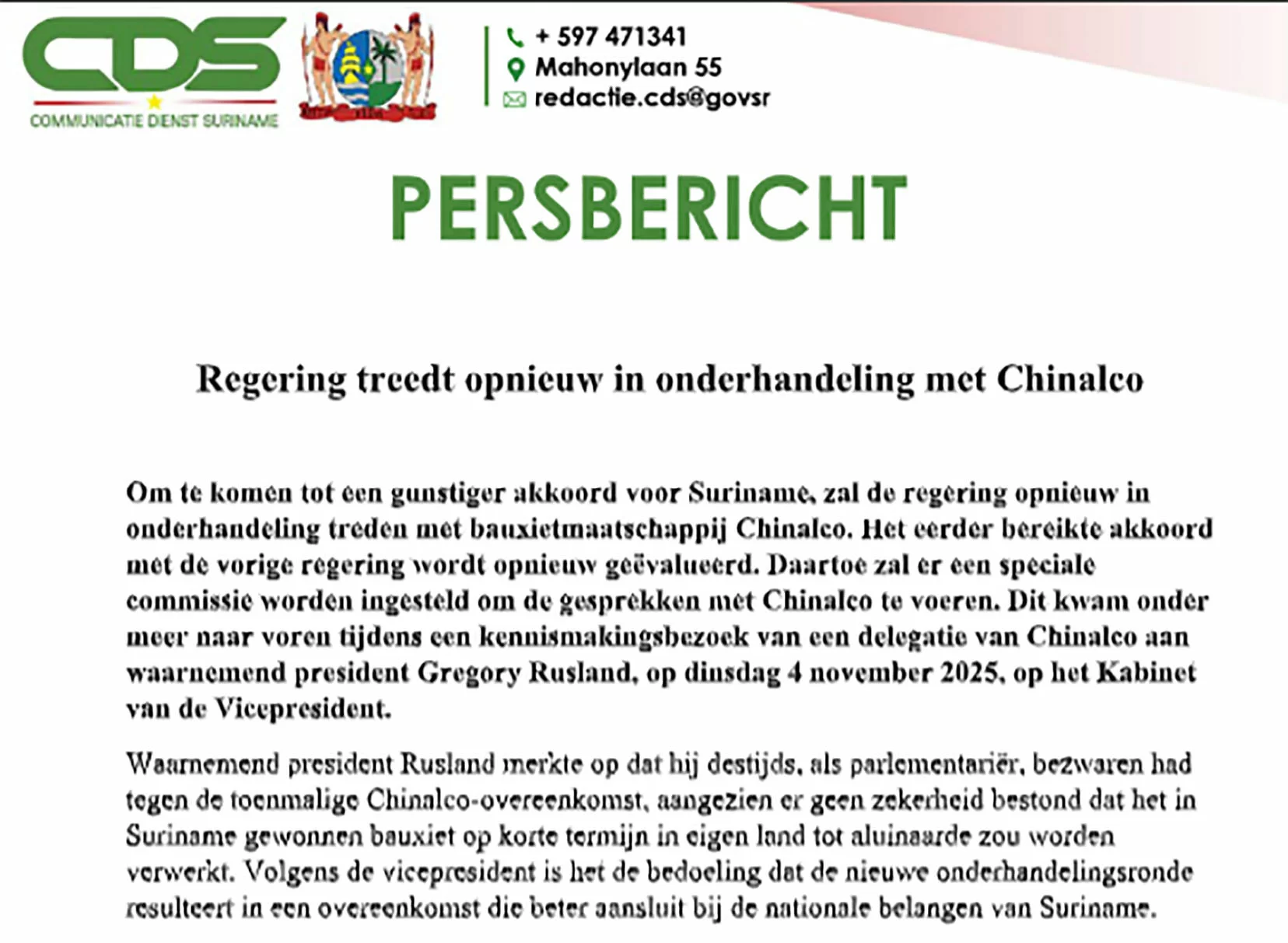
Column: De schuld van de boodschapper
In a recurring pattern, the Surinamese government has once again shifted blame onto journalists for miscommunication, rather than addressing its own messaging errors. The latest incident involves Vice President Gregory Rusland, who, while acting as interim president, engaged in discussions with representatives from the Chinese mining company Chinalco. Following these talks, the Directorate of Public Communication issued an official statement titled ‘Resumption of Talks with Chinalco,’ which detailed plans for renewed negotiations aimed at securing a better agreement for Suriname. This statement was subsequently disseminated by the Suriname Communication Service (CDS) under the headline ‘Government Re-enters Negotiations with Chinalco.’
However, upon her return from Brazil, President Jennifer Simons publicly contradicted the statement, asserting that no negotiations were taking place with Chinalco and that no bauxite would be exported. She emphasized that ‘the government consists of the president, the vice president, and the Council of Ministers,’ indirectly rebuking Rusland. This contradiction has left journalists and media outlets in a difficult position, as they had reported based on official government communications.
The opposition has seized upon this incident, suggesting a lack of unity within the government. The core question remains: what truly transpired? The original statement from the Directorate of Public Communication implies that Rusland either acted independently, driven by his ego as interim president, or that his office fabricated the information. Both scenarios are equally troubling. Despite the viral spread of the government’s statement, Rusland did not refute it before Simons’ remarks.
Yet, the media bore the brunt of the blame. Rusland denied any negotiations, and Simons accused journalists of ‘writing something incorrect.’ However, the fault lies not with the media but with the vice president’s office, which released the misleading information. Journalists merely reported based on official sources.
This is not the first instance where politicians have made politically inconvenient statements only to later blame the press. While journalists are not infallible, it is detrimental to democracy when those in power systematically shift the blame for their communication failures onto the media. True credibility comes from acknowledging mistakes, not denying or distorting them. A healthy democracy requires a mature relationship between the government and the press, built on mutual respect rather than distrust and blame.
-
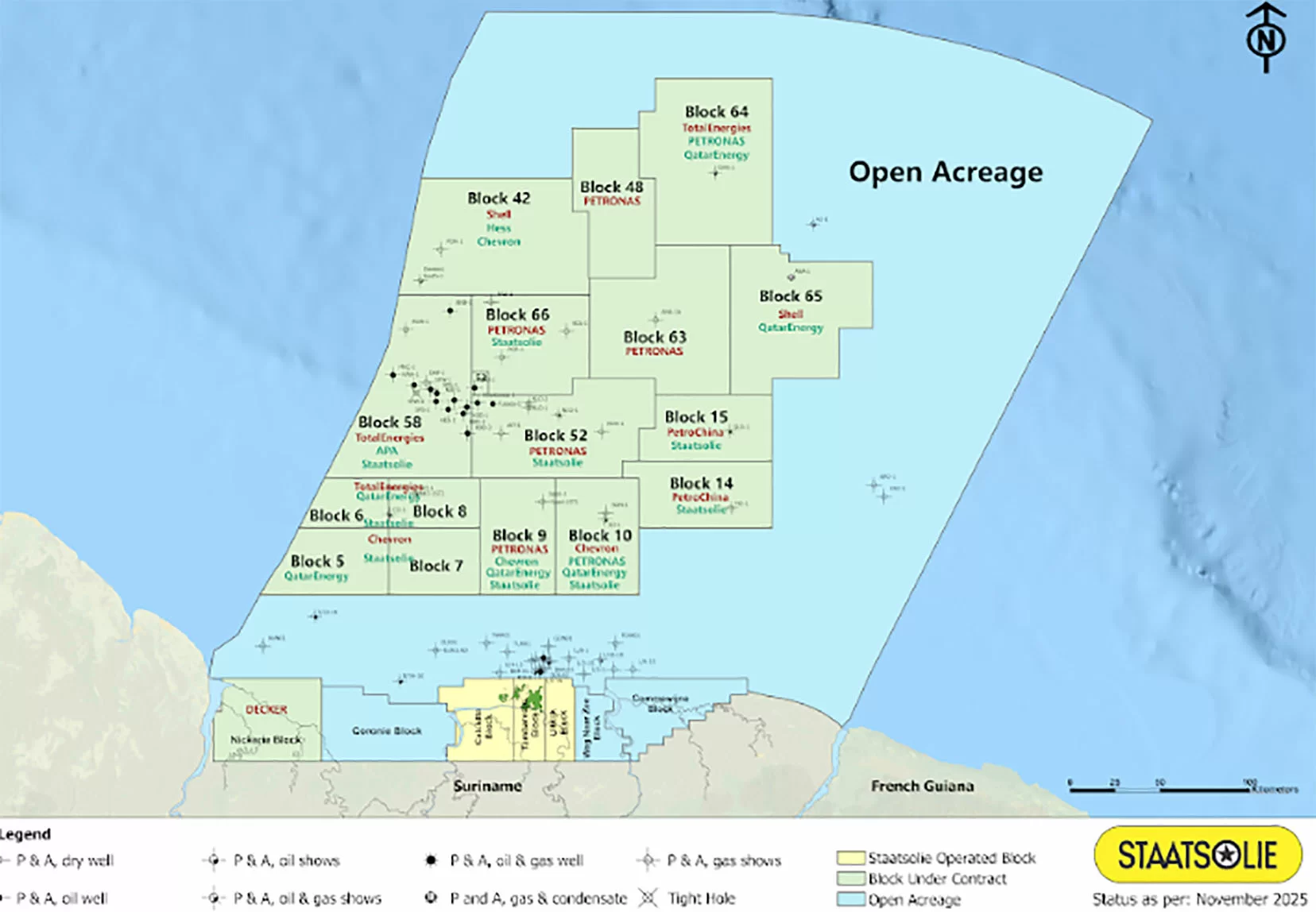
Staatsolie keurt commercieel veld voor gasontdekking Sloanea-1 in Blok 52 goed
In a significant step forward for Suriname’s energy sector, Staatsolie Maatschappij Suriname N.V. has officially approved the commercial development of the Sloanea-1 gas discovery in Block 52, located offshore Suriname. This decision, made on November 11, 2025, underscores the successful collaboration between Staatsolie and PETRONAS Suriname Exploration & Production B.V. (PETRONAS Suriname). The Sloanea-1 field, discovered in late 2020, has been evaluated for its commercial viability, leading to the signing of a gas addendum to the Production Sharing Contract (PSC) established in 2013. PETRONAS Suriname, the operator of Block 52 with an 80% stake, alongside Paradise Oil Company (POC), a subsidiary of Staatsolie holding the remaining 20%, has conducted extensive assessments, including the drilling of the Sloanea-2 appraisal well in 2024. These efforts have provided a more accurate estimate of the field’s gas reserves and recoverable volumes. The approved development plan includes gas production wells, subsea infrastructure, and a Floating LNG (FLNG) facility, a first for the region. PETRONAS Suriname will now prepare and submit the development plan for Staatsolie’s approval, with the Final Investment Decision (FID) expected in the second half of 2026. Commercial gas production is anticipated to commence by 2030, aligning with Staatsolie’s vision of ‘Energizing a Bright Future for Suriname.’
-
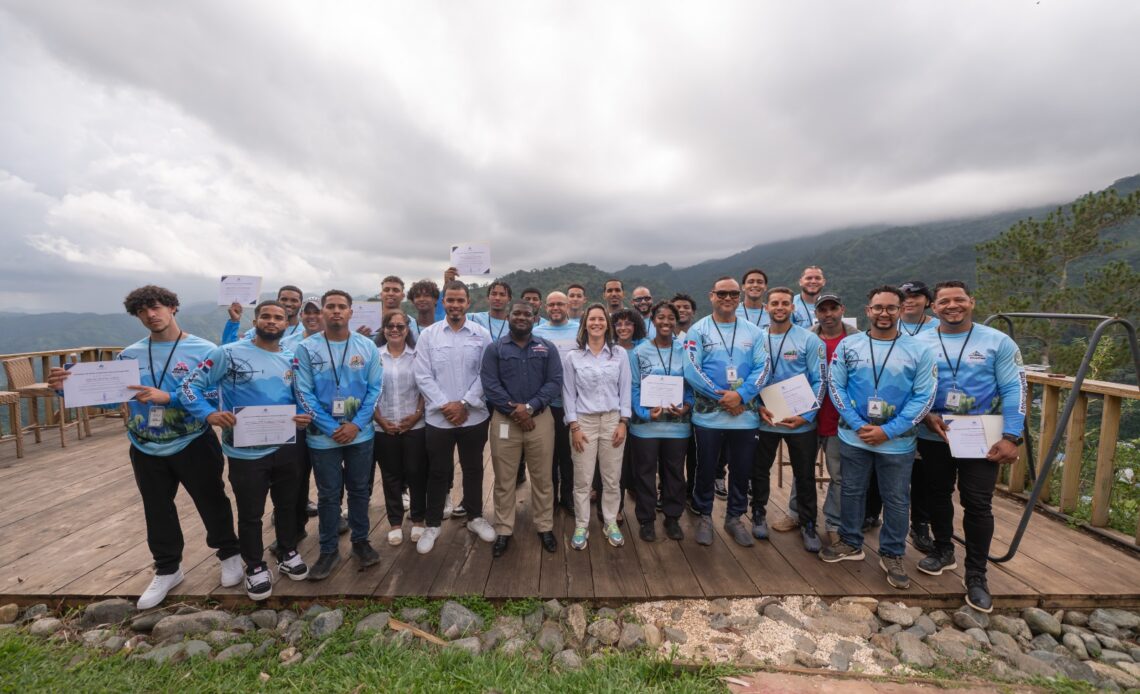
Environment Ministry certifies 28 new nature guides to boost ecotourism
In a significant step toward promoting ecotourism and environmental conservation, the Ministry of Environment, through its Vice Ministry of Protected Areas and Biodiversity, has certified 28 young residents from Monseñor Nouel and Loma de Blanco as nature interpreter guides. The graduation ceremony was held at Lomas del Cielo Ecocamping, located near Valle Nuevo National Park, and was attended by government authorities, institutions, and community leaders. The initiative aims to strengthen sustainable tourism and biodiversity preservation in the region. The comprehensive 112-hour training program, conducted in collaboration with the Civil Defense Risk Management School, covered essential topics such as environmental interpretation, ecological education, visitor management, trail safety, and conservation techniques. Graduates expressed that the certification has transformed their empirical knowledge into professional-level expertise, enabling them to contribute more effectively to the ecotourism sector. Local leaders, including José Alberto De Jesús, president of Asoguiemonb, emphasized that ecotourism is emerging as a vital economic driver for the province, fostering both environmental and community development.
-
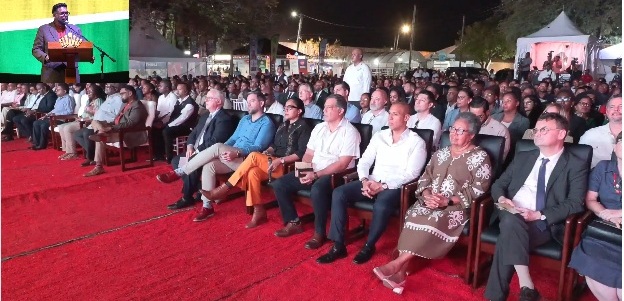
Ali warns gold miners of tough action for smuggling
President Irfaan Ali delivered a strong message to gold miners during his address at the opening of GUYEXPO 2025, held at the Sophia Exhibition Centre. He emphasized that the government would take severe action against those involved in gold smuggling, including shutting down their operations. Ali specifically targeted miners who benefit from government incentives but fail to comply with legal production declarations. ‘Those who are not compliant with the declaration, we are going to come after you hard and strong. We will find you, and you will lose your business,’ he stated. The President also commended the Guyana Gold and Diamond Miners Association (GGDMA) for supporting recent crackdowns on illegal mining activities in the Sand Hills and Toroparu areas. These operations, led by the Guyana Geology and Mines Commission and the Guyana Police Force, resulted in the detention of illegal miners and the dismantling of unauthorized shops. The GGDMA highlighted the need to curb activities like illegal mining, human trafficking, and drug sales, which have historically funded Venezuelan gangs, including the notorious Sindicato. Ali revealed that one smuggler alone caused a staggering GY$190 billion loss to Guyana’s economy, stressing the importance of tightening the system to prevent such leakages.
-
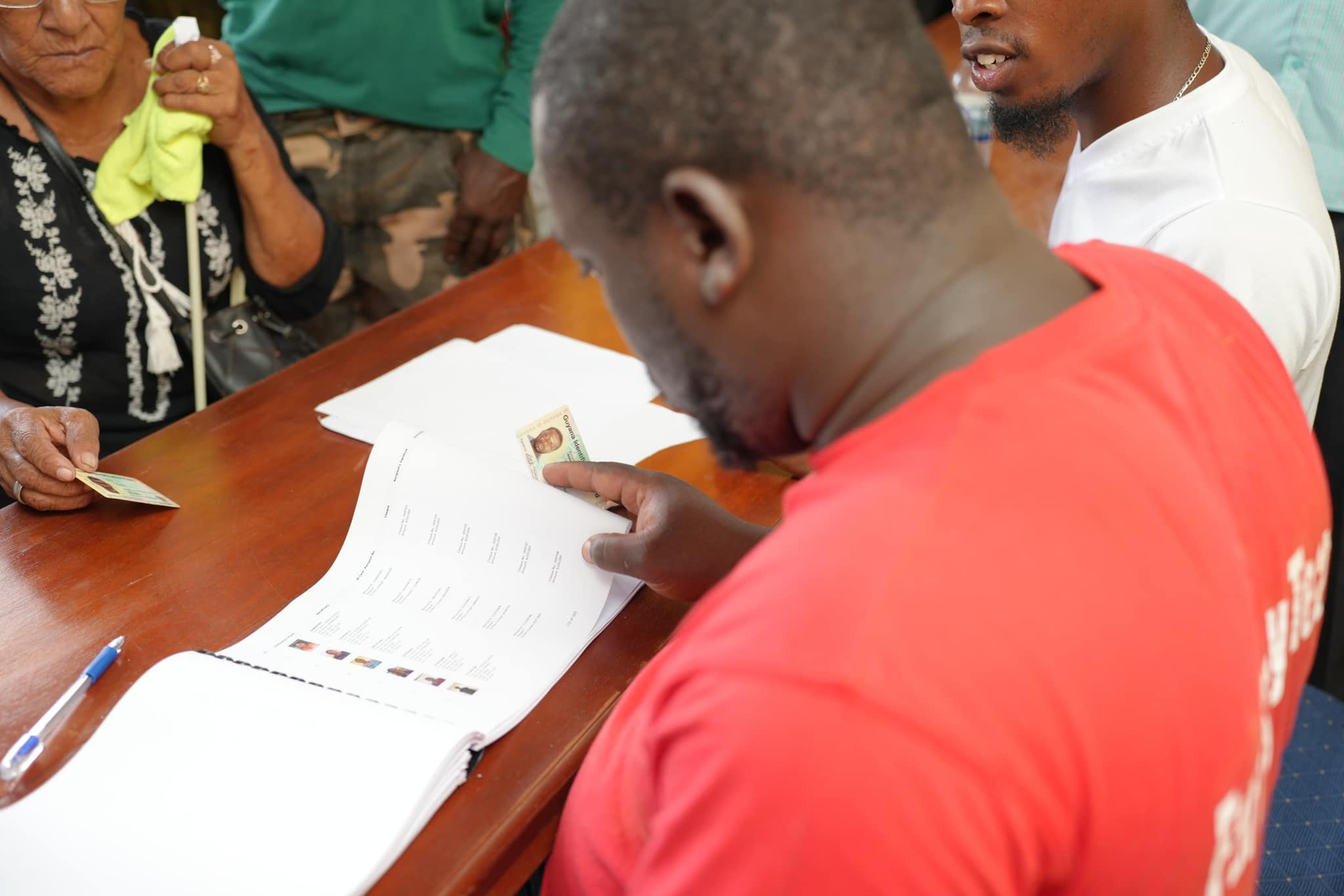
President reassures cash grants, other promises will be fulfilled
President Irfaan Ali of Guyana has firmly dismissed allegations that his administration would fail to deliver on its promise of cash grants before Christmas. The accusations were leveled by Azruddin Mohamed, Leader of the We Invest in Nationhood (WIN) political party, who claimed that the President was poised to break his commitment. Speaking at the opening ceremony of GUYEXPO 2025 at the Sophia Exhibition Site, President Ali responded with a stern rebuke, emphasizing that his government was fully aware of its obligations and would fulfill them promptly and effectively. He stated, ‘You don’t need to remind us about our commitment whether it’s cash grant, incentives, subsidies. We know what our commitments are and we are going to deliver on every one of them faster, better, greater.’ Earlier on Thursday, Mr. Mohamed had taken to Facebook to demand that the ruling People’s Progressive Party (PPP) honor its promises, referencing a statement made by President Ali on August 26, where he assured Guyanese of a ‘beautiful Christmas’ with cash grants. Vice-President Bharrat Jagdeo had also reiterated on October 2 that all campaign promises would be fulfilled. However, Mr. Mohamed noted that no official announcement had been made regarding the cash grants. In his address, President Ali, without directly naming Mr. Mohamed, advised him to ‘find your place, stay in your lane,’ and cautioned against overstepping his bounds. The President also highlighted the importance of maintaining the integrity of Guyana’s economy, describing it as neither a ‘toy’ nor a means for exploitation. This comes as Mr. Mohamed and his father, Nazar Mohamed, face a U.S. extradition request related to an 11-count indictment for wire fraud, mail fraud, and money laundering tied to their gold trading business. The Mohameds were sanctioned by the U.S. Treasury Department’s Office for Foreign Assets Control in June 2024 for allegedly evading over $50 million in taxes on gold exports. President Ali further warned Guyanese citizens against being swayed by misleading social media content, stating, ‘If we continue to let simplistic messages infiltrate our brains, we can destroy all that we are building.’ The WIN party, which secured 16 of the 65 seats in the National Assembly, has emerged as Guyana’s largest parliamentary opposition party, surpassing the People’s National Congress Reform-led coalition.
-
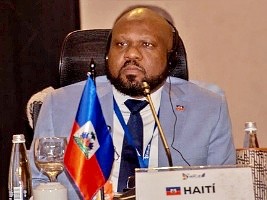
CELAC-EU : Presidential Advisor Smith Augustin’s busy agenda
Presidential Advisor Smith Augustin played a pivotal role at the CELAC-EU Summit in Santa Marta, Colombia, co-chaired by Colombian President Gustavo Petro and European Council President António Costa. Augustin emphasized Haiti’s dedication to dialogue, security, governance, and credible elections, while urging enhanced collaboration with the European Union in areas of resilience, reconstruction, and sustainable development. On the sidelines, he engaged in critical discussions with OAS Secretary General Albert Ramdin to advance the ‘Roadmap for Stability and Peace in Haiti,’ ahead of Ramdin’s official visit in December 2025. Augustin also met with regional leaders, including Brazilian President Luiz Inácio Lula da Silva and Colombian Vice President Francia Márquez, underscoring regional solidarity and support for Haiti’s stability. Additionally, he strengthened bilateral ties with French Minister Jean-Noël Barrot, focusing on strategic cooperation in training, trade, and governance. The Summit concluded with dialogues on EU-Caribbean partnerships in weather forecasting, disaster risk management, and regional satellite connectivity, highlighting a unified commitment to addressing climate change and fostering sustainable development. The event reaffirmed the collective resolve to support Haiti’s recovery as integral to regional progress.

